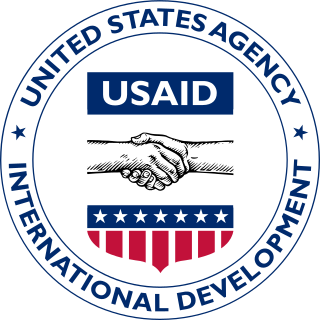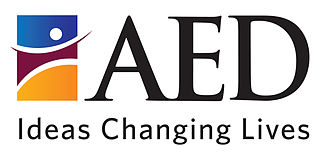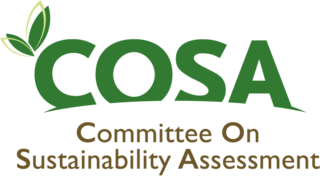Related Research Articles

The United States Agency for International Development (USAID) is an independent agency of the United States government that is primarily responsible for administering civilian foreign aid and development assistance. With a budget of over $50 billion, USAID is one of the largest official aid agencies in the world and accounts for more than half of all U.S. foreign assistance—the highest in the world in absolute dollar terms.

Andrew S. Natsios is an American public servant and Republican politician originally from Massachusetts, who served in a number of positions in the administrations of Governor Paul Cellucci and president of the United States George W. Bush.

The United States President's Emergency Plan For AIDS Relief (PEPFAR) is a United States governmental initiative to address the global HIV/AIDS epidemic and help save the lives of those suffering from the disease. Launched by U.S. President George W. Bush in 2003, as of May 2020, PEPFAR has provided about $90 billion in cumulative funding for HIV/AIDS treatment, prevention, and research since its inception, making it the largest global health program focused on a single disease in history until the COVID-19 pandemic. PEPFAR is implemented by a combination of U.S. government agencies in over 50 countries and overseen by the Global AIDS Coordinator at the United States Department of State. As of 2023, PEPFAR has saved over 25 million lives, primarily in sub-Saharan Africa.

Development aid is a type of foreign/international/overseas aid given by governments and other agencies to support the economic, environmental, social, and political development of developing countries. Closely related concepts include: developmental aid, development assistance, official development assistance, development policy, development cooperation and technical assistance. It is distinguished from humanitarian aid by aiming at a sustained improvement in the conditions in a developing country, rather than short-term relief. Development aid is thus widely seen as a major way to meet Sustainable Development Goal 1 for the developing nations.

The International AIDS Vaccine Initiative (IAVI) is a global not-for-profit, public-private partnership working to accelerate the development of vaccines to prevent HIV infection and AIDS. IAVI researches and develops vaccine candidates, conducts policy analyses, serves as an advocate for the HIV prevention field and engages communities in the trial process and AIDS vaccine education. The organization takes a comprehensive approach to HIV and AIDS that supports existing HIV prevention and treatment programs while emphasizing the need for new AIDS prevention tools. It also works to ensure that future vaccines will be accessible to all who need them.

DAI Global, LLC is a privately held development company with corporate offices in more than a dozen countries, including in Bethesda, Maryland, in the United States; London and Apsley, Hertfordshire, in the United Kingdom; Abuja and Lagos, in Nigeria; and Brussels, Vienna, and other European capitals.
TB Alliance is a not-for-profit product development partnership (PDP) dedicated to the discovery and development of new, faster-acting and affordable tuberculosis (TB) medicines. Since its inception in 2000, TB Alliance has worked to grow the field of available treatments for TB and now manages the largest pipeline of new TB drugs in history. It was founded in Cape Town, South Africa, and has since expanded. It is headquartered in New York City and has a regional office in Pretoria.
In different administrative and organizational forms, the Food for Peace program of the United States has provided food assistance around the world for more than 60 years. Approximately 3 billion people in 150 countries have benefited directly from U.S. food assistance. The Bureau for Humanitarian Assistance within the United States Agency for International Development (USAID) is the U.S. Government's largest provider of overseas food assistance. The food assistance programming is funded primarily through the Food for Peace Act. The Bureau for Humanitarian Assistance also receives International Disaster Assistance Funds through the Foreign Assistance Act (FAA) that can be used in emergency settings.

The U.S. Trade and Development Agency (USTDA) is an independent agency of the United States government, formed in 1992 to advance economic development and U.S. commercial interests in developing and middle income countries.

AED, formerly the Academy for Educational Development, was a 501(c)(3) nonprofit organization that focused on education, health and economic development for the "least advantaged in the United States and developing countries throughout the world." AED operated more than 250 programs in the United States and in 150 other countries around the world.

The United States established diplomatic relations with Malawi in 1964 after Malawi gained independence from the United Kingdom. Malawi's transition from a one-party state to a multi-party democracy significantly strengthened the already cordial U.S. relationship with Malawi. Significant numbers of Malawians study in the United States. The United States has an active Peace Corps program, Centers for Disease Control and Prevention, Department of Health and Human Services, and an Agency for International Development (USAID) mission in Malawi. Both countries have a common history and English language, as they were part of the British Empire.

U.S.–Uzbekistan relations formally began when the United States recognized the independence of Uzbekistan on December 25, 1991, and opened an embassy in Tashkent in March 1992. U.S.-Uzbekistan relations developed slowly and reached a peak following the U.S. decision to invade Afghanistan following the September 11, 2001 attacks. Relations cooled significantly following the "color revolutions" in the former Soviet republics of Georgia, Ukraine, and Kyrgyzstan in 2003–2005, and the Government of Uzbekistan sought to limit the influence of U.S. and other foreign non-governmental organizations (NGOs) working on civil society, political reform, and human rights inside the country.

Bolivia–United States relations were established in 1837 with the first ambassadorial visit from the United States to Peru–Bolivian Confederation. The Confederation dissolved in 1839, and bilateral relations did not occur until 1848 when the United States recognized Bolivia as a sovereign state and appointed John Appleton as the Chargé d'Affaires.

Rajiv J. "Raj" Shah is an American physician, economist and executive. He is the president of the Rockefeller Foundation and a former government official and health economist who served as the sixteenth administrator of the United States Agency for International Development (USAID) from 2010 to 2015. Shah is the author of the book Big Bets: How Large-Scale Change Really Occurs, which was released by Simon Element on October 10, 2023.

The Committee on Sustainability Assessment (COSA) is a global consortium of development institutions that work collaboratively to advance sustainability learning with systematic and science-based measurement. COSA applies a pragmatic and collective approach for using scientific methods to develop indicators, tools, and technologies to measure the distinct social, environmental, and economic impacts and are applied in performance monitoring, evaluation, return on investment (ROI) calculation, and impact assessment. COSA has a public mission to open its scientific methods and metrics up to widespread use.

United States aid to Sudan has three key objectives: a definitive end to conflict, gross human rights abuses, and genocide in Darfur; implementation of the north–south Comprehensive Peace Agreement that results in a peaceful post-2011 Sudan, or an orderly path toward two separate and viable states at peace with each other; and ensuring that Sudan does not provide a safe haven for international terrorists. Sudan has experienced two civil wars since 1955, the second of which lasted 22 years. During this time, the U.S. was the largest provider of foreign aid to Sudan, largely focused on humanitarian aid through the U.S. Agency for International Development. Sudan is listed as the U.S. government's highest priority in Africa due to "its importance for counter-terrorism and regional stability, as well as the magnitude of human rights and humanitarian abuses" U.S. foreign aid to Sudan has begun to see some positive indicators of performance although critical reaction has said that aid to Sudan is neither strategic nor focused.

Daniel FitzGerald Runde is a senior executive and strategist in international development, international trade, investment, global business and organizational change. Runde is the author of the book, "The American Imperative: Reclaiming Global Leadership through Soft Power."

The Sustainable Development Investment Partnership (SDIP) is an international public-private partnership which aims to use blended finance to support sustainable infrastructure investments in developing countries. The SDIP thus brings together public, private and philanthropic entities to work towards the Sustainable Development Goals (SDGs) set out by the United Nations. The SDIP was launched at the United Nations Conference on Financing for Development in Addis Ababa in July 2015 with 20 founding members, which has since risen to 42. The World Economic Forum and OECD were founding partners and provide institutional support. SDIP's inaugural meeting took place in Geneva, Switzerland on 15 September 2015.
Public–private partnerships are cooperative arrangements between two or more public and private sectors, typically of a long-term nature. In the United States, they mostly took the form of toll roads concessions, community post offices and urban renewal projects. In recent years, there has been interest in expanding P3s to multiple infrastructure projects, such as schools, universities, government buildings, waste and water. Reasons for expanding public-private partnership in the United States were initially cost-cutting and concerns about Public debt. In the early 2000s, P3s were implemented sporadically by different States and municipalities with little federal guidance. During Obama's second term, multiple policies were adopted to facilitate P3 projects, and Congress passed bills in that direction with overwhelming bipartisan support. My Brother's Keeper Challenge is an example of a public–private partnership. Some Private-public partnerships were carried out without incident, while others have attracted much controversy.

Viktoriya Oleksandrivna Hryb, or Viсtoria Gryb, is a Ukrainian politician, who is serving as a Member of the Verkhovna Rada. She is a Head of the Subcommittee on Energy Security of the Verkhovna Rada Committee on Energy and Housing and Communal Services. Victoria Gryb has over 25 years of professional experience including more than 20 years of experience within roles that combine strategic and managerial responsibility. She has more than 16 years of experience with the Regional USAID Mission for Ukraine, Moldova, Belarus in Kyiv.
References
- ↑ "Global Development Alliances (GDAs), United States Agency for International Development" (PDF). OECD. 2016. Archived (PDF) from the original on 2021-03-10.